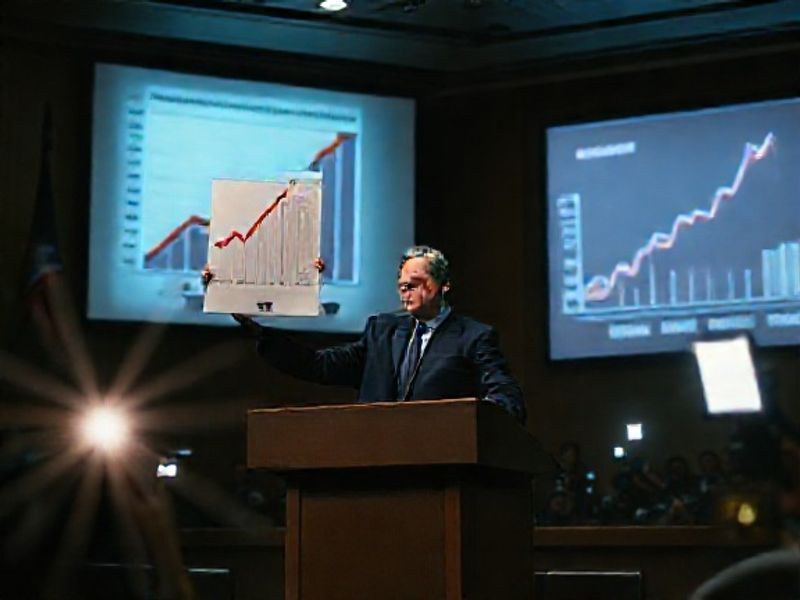Global Inflation Report: The Worldwide Wallet Squeeze No One Ordered but Everyone’s Paying For
**The Inflation Report: A Global Comedy of Errors Where Everyone’s Wallet Gets Lighter and No One’s Laughing**
By the time the latest inflation report hit the wires, central bankers from Frankfurt to Fiji were already practicing their best “this is fine” smiles. The numbers, as expected, were hot—hotter than a Bangkok sidewalk in April, and about as forgiving. Global inflation, that stubborn economic houseguest who refuses to leave, has once again outstayed its welcome, clocking in at a charming 5.7% average across OECD nations. That’s down from last year’s peak, sure, but still high enough to make your grocery bill look like a typo.
From the glass towers of Zurich to the souks of Marrakech, the story is the same: your money now buys less, unless you’re in the market for political platitudes—those are still being printed at full speed. In Europe, where inflation has decided to linger like a bad perfume, the ECB is raising rates with the enthusiasm of a dentist who’s just found a cavity. Meanwhile, in Turkey, inflation is doing its best impression of a rocket launch, hitting 75% annually, because apparently one must dominate *something* globally, even if it’s just the rate at which your currency becomes decorative.
Across the pond, the U.S. Federal Reserve is playing its favorite game: “Will We or Won’t We Cut Rates?”—a suspense thriller with fewer plot twists than a telenovela and roughly the same emotional toll. Americans, ever the optimists, are coping by buying more things they don’t need with money they no longer have. Consumer debt has hit a record $17 trillion, a number so large it now has its own agent and a three-picture deal with Netflix.
But let’s not forget the developing world, where inflation isn’t just a nuisance—it’s a survival quiz with no right answers. In Argentina, prices are rising faster than the government can rename its currency, and that’s saying something. The peso has been re-denominated so many times locals now use it as a unit of weight. In Nigeria, inflation is outpacing wage growth by such a wide margin that even the most devout are beginning to suspect divine intervention might be inflation-linked.
China, ever the contrarian, is flirting with deflation—because why not be different? While the rest of the world burns money for warmth, Beijing is wondering why no one wants to buy a fifth apartment in a ghost city. It’s a bold strategy: when everyone else zigs into hyperinflation, you zag into economic stagnation. Truly, the yin and yang of global misery.
The broader significance? Inflation isn’t just eroding purchasing power—it’s eroding trust. Trust in institutions, in forecasts, in the quaint notion that your paycheck will still mean something by the time you cash it. Governments are responding with the usual toolkit: rate hikes, subsidy cuts, and the occasional finger-wag at “greedy corporations.” It’s like watching a firefighter try to put out a blaze with a spreadsheet.
And yet, life goes on. People adapt. In Japan, where inflation has been shy for decades, citizens are now bonding over the shared trauma of paying $4 for an apple. In Egypt, where bread prices have doubled, households are reinventing the concept of dinner with the creativity of a Michelin-starred chef on a prison budget. Humanity, it seems, is indefatigably inventive when cornered—especially when cornered by economists.
So what now? Do we brace for another year of shrinkflation, stealth price hikes, and central bankers speaking in tongues? Probably. Inflation may be global, but the suffering is always local. And while the numbers may eventually cool, the memory of watching your savings evaporate like morning dew in Lagos heat will linger far longer.
In the end, inflation is less an economic indicator and more a mirror—reflecting our collective delusions, our short-termism, our endless capacity to believe that *this time*, the boom won’t be followed by the bust. Spoiler alert: it will be. But don’t worry. There’ll be a report.







